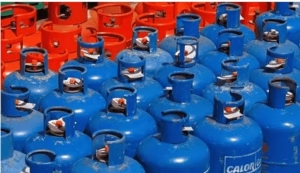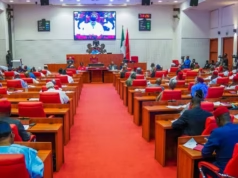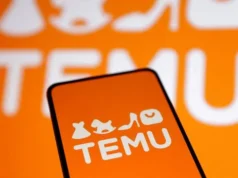To stabilize skyrocketing costs, FG prohibits the export of cooking gas.
The export of domestically generated Liquefied Petroleum Gas (LPG), commonly referred to as cooking gas, will cease on November 1, 2024, according to a Federal announcement. Ekperikpe Ekpo, the Minister of State for Petroleum Resources (Gas), revealed this decision, which aims to alleviate Nigerians’ burden of growing costs by giving priority to domestic supplies.
Following a high-level meeting between government Representatives and stakeholders in the LPG value chain in Abuja, the Minister’s spokesperson, Louis Ibah, released a statement announcing the decision.

The ongoing rise in gas costs and their detrimental effects on households nationwide were the main topics of discussion.
According to earlier BusinessDay reporting
The average cost of refilling a 12.5 kg cooking gas cylinder increased from ₦9,162.11 in July 2023 to ₦14,261.57 in July 2024, a rise of ₦5,099.46 in just one year. Prices have continued to fluctuate despite government involvement; latest figures show that they have increased to ₦1,500 per kilogram, up from the prior average of ₦1,100 to ₦1,250 per kilogram.
In order to develop long-term solutions, the Minister called a high-level group in November 2023, which was led by Farouk Ahmed, the CEO of the Nigerian Midstream and Downstream Petroleum Regulatory Authority (NMDPRA). However, the government has taken a more drastic measure by stopping LPG exports because prices are still rising.
According to Ekpo’s most recent regulation
All producers—including the Nigerian National Petroleum Company Limited (NNPCL)—must either stop exporting LPG or, in the event that exports do occur, import an equivalent quantity at cost-reflective pricing.
“Producers will either import comparable volumes at prices reflecting market realities or cease exporting LPG as of November 1, 2024, in order to stabilize prices,” Ekpo said.In addition, the Minister gave the NMDPRA 90 days to work with industry participants to create a domestic pricing structure. Unlike the existing paradigm, which indexes pricing against external markets like those in the Americas and Asia, this framework will be based on local production costs.

The statement emphasized that even if cooking gas is produced locally, Nigerians are forced to pay outrageous prices for it due to pricing tied to international markets.
The Federal Government declared intentions to build distribution, blending, and storage facilities over the course of the upcoming year as a long-term solution. Until Nigeria reaches market sufficiency and stable prices, the export prohibition would be in effect.
According to the statement, “the government is committed to ensuring Nigerians have access to this essential commodity at affordable prices and remains deeply concerned about the rising cost of cooking gas.”
Households struggling with the growing cost of living might see some respite from the new export ban. More stability in gas prices is anticipated, according to industry analysts, if local supply is prioritized and a cost-reflective pricing structure is implemented.
Join Our Social Media Channels:
WhatsApp: NaijaEyes
Facebook: NaijaEyes
Twitter: NaijaEyes
Instagram: NaijaEyes
TikTok: NaijaEyes





